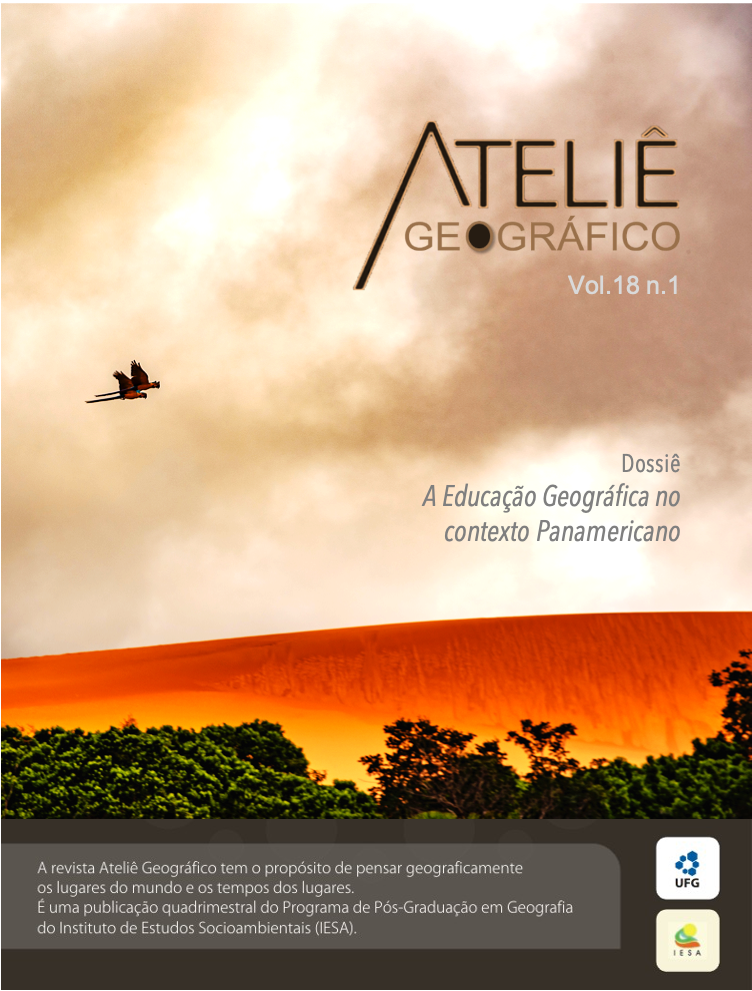Comparative study on gender and spatial thinking in the training of Geography teachers: analysis between academics from UERJ and UFT
DOI:
https://doi.org/10.5216/ag.v18i1.79051Abstract
This study is part of collaborative research carried out in a network between five Brazilian universities. The objective was to investigate how undergraduate Geography courses are influencing the development of students' spatial thinking, aiming to improve their geographic interpretation throughout their initial training. The research falls within the field of Spatial Thinking applied to Geographic Education. This specific study analyzes data from incoming and graduating students at the State University of Rio de Janeiro and the Federal University of Tocantins. Data collection was carried out using the Spatial Thinking Aptitude Test (STAT), which assesses spatial thinking related to representations of space, mainly cartographic, and geographic themes. The results were compared between the groups of incoming and graduating students, also taking into account the gender of the participants, with the aim of identifying possible significant differences between the two groups.
Downloads
Downloads
Published
How to Cite
Issue
Section
License
Autores que publicam nesta revista concordam com os seguintes termos:- Autores mantém os direitos autorais e concedem à revista o direito de primeira publicação, com o trabalho simultaneamente licenciado sob a Licença Creative Commons Attribution que permite o compartilhamento do trabalho com reconhecimento da autoria e publicação inicial nesta revista.
- Os autores não serão remunerados pela publicação de trabalhos na Revista Ateliê Geográfico. Além disso, os conteúdos publicados são de inteira e exclusiva responsabilidade de seus autores, ainda que reservado aos editores o direito de proceder a ajustes textuais e de adequação às normas da publicação.
- Autores têm permissão e são estimulados a divulgar seu trabalho online (ex.: em repositórios institucionais ou na sua página pessoal), já que isso pode gerar alterações produtivas, bem como aumentar o impacto e a citação do trabalho publicado (Veja O Efeito do Acesso Livre).


